
Composers
2010-2012 touring programs feature music by:
Dorothy Chang, Jonathan Elliott, Libby Larsen, Augusta Read Thomas, Gordon Jacob,
Edison Denisov, Mark Engebretson, Alphonse Stallaert, Günter Raphael, Rebecca Clarke
Dorothy Chang www.dorothychang.com

Described as "evocative and kaleidoscopic" (Seattle Times), the music of composer Dorothy Chang (b. 1970) has been performed by orchestras including the Albany (NY) Symphony, Aspen Concert Orchestra, Chicago Civic Orchestra, Indianapolis Symphony, Queens Symphony, Seattle Symphony, Saint Paul Chamber Orchestra and Vancouver Symphony, as well as by chamber ensembles including eighth blackbird, the Smith Quartet (UK), the Chicago Saxophone Quartet, Collage New Music (Boston), North/South Consonance (New York), Music from China, and Toca Loca (Toronto). She has received commissions from Chamber Music America, the Barlow Endowment, the Mary Flagler Cary Charitable Trust, the Canada Council for the Arts and the British Columbia Arts Council, among others. Her music has been featured in concerts and festivals across North America and abroad, most recently at the PAN Music Festival (Seoul), Lontano Festival (UK), and the World Saxophone Congress in Slovenia.
Dorothy's music has been recognized through honors and prizes including a Charles Ives Scholarship from the American Academy of Arts and Letters, awards from the American Society of Composers, Authors and Publishers, the International Alliance for Women in Music, Mu Phi Epsilon, the National Society of Arts and Letters, Meet the Composer and the Jacob Druckman Orchestra Prize from the Aspen Music Festival. She has held residencies at the Banff Centre for the Arts, MacDowell Colony, Ragdale Foundation, Atlantic Center for the Arts and the Lancaster Music Festival. For the 2005-2008 concert seasons, she has been appointed composer-in-residence of the Albany Symphony Orchestra through the Music Alive program of Meet the Composer and the American Symphony Orchestra League.
Dorothy is composer and co-founder of the Riverbed Theatre Company, which specializes in collaborative, image-based theatre productions. Performances have included The Peacock Maiden, a children's musical production in Santa Barbara, CA, rice/water which was featured on the First Annual Taiwanese Experimental Theatre Festival, Burnt Rice which was hailed as "one of the top 10 productions in 1998" by the Pobao Arts Weekly (Taipei), and additional collaborations produced in Boston and Chicago. Recently she collaborated on Tinquero, which was featured in 2004 at the Eslite Art Space in Taipei as well as the Kaohsiung Arts Museum in Kaoshiung, Taiwan. As composer-in-residence of the Kylix New Music Ensemble from 1999-2001, Dorothy composed several new works for the group and participated in educational outreach concerts at the Contemporary Performer's Workshop in Cincinnati, Ohio.
Born in Winfield, Illinois, Dorothy began her music studies on piano at age six and began composing at the age of fourteen. She received degrees in composition from the University of Michigan (B.M., M.M.) and the Indiana University School of Music (D.M). She has served on the music faculty at Indiana State University and is presently Assistant Professor of Music at the University of British Columbia in Vancouver, Canada.
Jonathan Elliott www.jonathanelliott.org
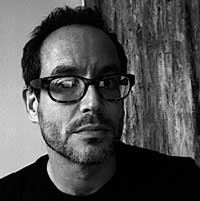
Jonathan Elliott, a native of Philadelphia, is a composer, pianist and sound designer. His music has been heard in concert and broadcasts around the world He has won numerous awards and honors for his work, including fellowships from the MacDowell Colony,Yaddo, the Ragdale Foundation, the New State Council on the Arts, the International Festival of New Music at Darmstadt, Centre Acanthes, the Aspen Music Festival, and the W.K. Rose Trust. He has won prizes from BMI, ASCAP, the Chicago Symphony, the American Composers Forum, Forum 91/UNESCO, and others. He has been commissioned by leading concert artists and presenting organizations including PS122, the Poetry Project at Saint Marks, the American Liszt Society, American Composers Forum, The Center for Experimental Theater at Vassar College. His music is published by Lux Nova Press and PBP Music and recorded on Koch International Classics. He lives in Brooklyn, NY, and is composer in residence and head of the music department at Saint Ann's School.
Libby Larsen
libbylarsen.com
Photo by Ann Marsden
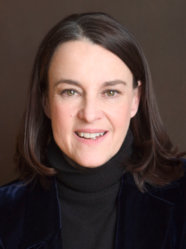 Libby Larsen is one of America's most prolific and most performed living composers. She has created a catalogue of over 400 works spanning virtually every genre from intimate vocal and chamber music to massive orchestral works and over twelve operas. Her music has been praised for its dynamic, deeply inspired, and vigorous contemporary American spirit. Constantly sought after for commissions and premieres by major artists, ensembles and orchestras around the world, Libby Larsen has established a permanent place for her works in the concert repertory.
Libby Larsen is one of America's most prolific and most performed living composers. She has created a catalogue of over 400 works spanning virtually every genre from intimate vocal and chamber music to massive orchestral works and over twelve operas. Her music has been praised for its dynamic, deeply inspired, and vigorous contemporary American spirit. Constantly sought after for commissions and premieres by major artists, ensembles and orchestras around the world, Libby Larsen has established a permanent place for her works in the concert repertory.
Larsen has been hailed as "the only English-speaking composer since Benjamin Britten who matches great verse with fine music so intelligently and expressively" (USA Today); as "a composer who has made the art of symphonic writing very much her own." (Gramophone); as "a mistress of orchestration" (Times Union); and for "assembling one of the most impressive bodies of music of our time" (Hartford Courant). Her music has been praised for its "clear textures, easily absorbed rhythms and appealing melodic contours that make singing seem the most natural expression imaginable." (Philadelphia Inquirer) "Libby Larsen has come up with a way to make contemporary opera both musically current and accessible to the average audience." (The Wall Street Journal). "Her ability to write memorable new music completely within the confines of traditional harmonic language is most impressive." (Fanfare)
Libby Larsen has received numerous awards and accolades, including a 1994 Grammy as producer of the CD: The Art of Arlene Augér, an acclaimed recording that features Larsen's Sonnets from the Portuguese. Her opera Frankenstein, The Modern Prometheus was selected as one of the eight best classical music events of 1990 by USA Today. The first woman to serve as a resident composer with a major orchestra, she has held residencies with the California Institute of the Arts, the Arnold Schoenberg Institute, the Philadelphia School of the Arts, the Cincinnati Conservatory, the Minnesota Orchestra, the Charlotte Symphony, and the Colorado Symphony. Larsen's many commissions and recordings are a testament to her fruitful collaborations with a long list of world-renowned artists, including The King's Singers, Benita Valente, and Frederica von Stade, among others. Her works are widely recorded on such labels as Angel/EMI, Nonesuch, Decca, and Koch International.
As a past holder of the 2003-2004 Harissios Papamarkou Chair in Education at the Library of Congress and recipient of the Eugene McDermott Award in the Arts from the Massachusetts Institute of Technology as well as a Lifetime Achievement Award from the American Academy of Arts and Letters, Libby Larsen is a vigorous, articulate champion of the music and musicians of our time. In 1973, she co-founded (with Stephen Paulus) the Minnesota Composers Forum, now the American Composers Forum, which has been an invaluable advocate for composers in a difficult, transitional time for American arts. Consistently sought-after as a leader in the generation of millenium thinkers, Libby Larsen's music and ideas have refreshed the concert music tradition and the composer's role in it.
Augusta Read Thomas www.augustareadthomas.com
Photo © by Michael Lutch
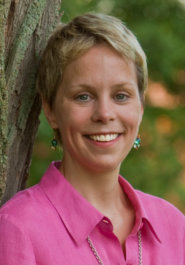 Augusta Read Thomas was the Mead Composer-in-Residence with the Chicago Symphony Orchestra from 1997 through 2006. In 2007, her Astral Canticle was one of the two finalists for the Pulitzer Prize in Music. Thomas has also been on the Board of Directors of the American Music Center since 2000, as well as on the boards and advisory boards of several chamber music groups. She was elected Chair of the Board of the American Music Center, a volunteer position that ran from 2005 to 2008.
Augusta Read Thomas was the Mead Composer-in-Residence with the Chicago Symphony Orchestra from 1997 through 2006. In 2007, her Astral Canticle was one of the two finalists for the Pulitzer Prize in Music. Thomas has also been on the Board of Directors of the American Music Center since 2000, as well as on the boards and advisory boards of several chamber music groups. She was elected Chair of the Board of the American Music Center, a volunteer position that ran from 2005 to 2008.
Augusta is a passionate and devoted teacher. She is in very close touch with 15 years' worth of students. Teaching is a natural extension of her creative process and of her avid enthusiasm for the music of others. She is a devoted listener to the music of others and as such has a broad and deep knowledge of the music of our time. For Augusta, working with students is a joy, a deeply felt commitment, and an integrated part of her creative existence.
Augusta was an assistant, then associate professor of composition at the Eastman School of Music from 1993-2001, and from 2001 until 2006 was the Wyatt Professor of Music (Endowed Chair) at Northwestern University. She currently continues her involvement with Northwestern University by serving on the Dean's Music Advisory Board. In the summers she often teaches at the Tanglewood Music Center. Augusta was the Director of the Festival of Contemporary Music at Tanglewood in 2009. Frequently Ms. Thomas undertakes residencies in colleges, universities, and festivals across the country and in Europe. From time to time she teaches private composition lessons for advanced students. For 2009-2011 she is teaching and mentoring 10 high school-aged composers in the state of Connecticut. Each composer will have his or her new piece premiered by the New Haven Symphony in May 2011.
The American Academy of Arts And Letters has elected Augusta Read Thomas to membership. She was inducted in May 2009. The American Academy of Arts and Letters is an honor society of 250 architects, composers, artists, and writers. The honor of election is considered the highest formal recognition of artistic merit in the United States. The citation, given at her induction into the American Academy of Arts and Letters in May 2009, reads as follows:
"Augusta Read Thomas's impressive body of works embodies unbridled passion and fierce poetry. Championed by such luminaries as Barenbo im, Rostropovich, Boulez, and Knussen, she rose early to the top of her profession. Later, as an influential teacher at Eastman, Northwestern and Tanglewood, chairperson of the American Music Center, and the Chicago Symphony's longest-serving resident composer, she has become one of the most recognizable and widely loved figures in American Music."
G. Schirmer, Inc. is the exclusive publisher of Thomas' music, and her discography includes 45 commercially recorded CDs.
Gordon Jacob
 Gordon Jacob was one of the most prolific of English composers, spanning many fields from 'serious' to 'light'. Born in London and educated at Dulwich College, he was of the generation that was inevitably caught up in the 1914-18 Great War, in which he was wounded and taken prisoner. Rehabilitation eventually came when a grant enabled him to study at the Royal College of Music in London with Stanford, Howells and Boult as his teachers. As a teacher he soon established himself. He was on the staff of the Royal College of Music for forty years from 1926, teaching composition and orchestration.
Gordon Jacob was one of the most prolific of English composers, spanning many fields from 'serious' to 'light'. Born in London and educated at Dulwich College, he was of the generation that was inevitably caught up in the 1914-18 Great War, in which he was wounded and taken prisoner. Rehabilitation eventually came when a grant enabled him to study at the Royal College of Music in London with Stanford, Howells and Boult as his teachers. As a teacher he soon established himself. He was on the staff of the Royal College of Music for forty years from 1926, teaching composition and orchestration.
Among his books, Orchestral Technique (1931) has become a standard work. Jacob' compositions include two symphonies, and other orchestral music, chamber music, songs and part-songs, music for band and film scores. Older listeners will recall Dr. Gordon Jacob's witty arrangements for the popular radio series ITMA (It's That Man Again) featuring the Liverpool comedian Tommy Handley. Characteristic of Jacob's output is that he looked out for areas where there were gaps in the available repertoire. He wrote several concertos and solos, including those for less favoured instruments; trombone, bassoon, cor anglais and double bass. He would readily write for a new ensemble and welcomed a new challenge. He wrote a two-piano concerto (three hands) for Phyllis Sellick and the sadly handicapped Cyril Smith. When the prowess of the brilliant harmonica-player Tommy Reilly became known to him this inspired him to compose several most attractive pieces for that artist.
Rebecca Clarke www.rebeccaclarke.org/index.html
 Born and raised in England, with a German mother and an American father, Rebecca Clarke spent much of her adulthood in the United States and she claimed both English and American nationality. Her late-Victorian childhood is described in her memoir written in 1969-73. Her family was artistically inclined and her musical studies were encouraged. Clarke enrolled at the Royal Academy of Music in 1903, where she studied the violin. In 1907 she began studying composition at the Royal Academy.
Born and raised in England, with a German mother and an American father, Rebecca Clarke spent much of her adulthood in the United States and she claimed both English and American nationality. Her late-Victorian childhood is described in her memoir written in 1969-73. Her family was artistically inclined and her musical studies were encouraged. Clarke enrolled at the Royal Academy of Music in 1903, where she studied the violin. In 1907 she began studying composition at the Royal Academy.
Clarke soon embarked on an active performing career as a violist, and in 1912 she became the first female admitted to the Queen's Hall orchestra. In 1916 she began a US residency that included extensive travel, concertizing and visits with her two brothers. With cellist May Mukle, she performed extensively in Hawaii in 1918-1919 and on a round-the-world tour of the British colonies in 1923.
During these years Clarke achieved fame as a composer with her Viola Sonata (1919) and Piano Trio (1921), both runners up in competitions that were part of the Berkshire (Mass.) Festival of Chamber Music, sponsored by the American patron Elizabeth Sprague Coolidge. Coolidge commissioned the Rhapsody for Cello and Piano in 1923.
Clarke settled in London in 1924, where she performed as a soloist and ensemble player with musicians including Myra Hess, Adila Fachiri, André Mangeot, Gordon Bryan, Adolphe Hallis, Guilhermina Suggia and Mukle. In 1927 the English Ensemble was formed, a piano quartet made up of Clarke, Marjorie Hayward, Kathleen Long and Mukle. Clarke also performed as a soloist and ensemble musician in BBC broadcasts, and made several recordings.
With the onset of World War II, Clarke found herself in the USA, where she lived alternately with her two brothers and their families. During this period she returned to composing. In the early 1940s Clarke became reacquainted with James Friskin, a member of the piano department at the Juilliard School, whom she had first known as a student at the RCM; the couple married in 1944. Her last compositional projects include God Made a Tree (1954), an arrangement of her song Down by the Salley Gardens and, around her 90th birthday, revisions of earlier scores, including Cortège and The Tiger.
Edison Denisov
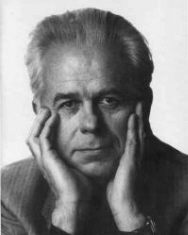
Edison Denisov was born in 1929 in Tomsk, Siberia, where he first studied mathematics at university. In 1951 he took up musical studies at the Moscow Conservatory - composition with Visarion Shebalin, orchestration with Nikolai Rakov, analysis with Viktor Zuckerman and piano with Vladimir Belov - which he completed in 1956. In the sixties, Edison Denisov devoted himself to an in-depth study of the work of the "classic" composers of the twentieth century (Stravinsky, Bartók, the Second Viennese School) and of contemporary Western art (Boulez, Nono, Stockhausen and Lutoslawski). This period corresponds to his search for a personal style which, at the time, was beginning to affirm itself in vocal and instrumental pieces. Of great significance for his further development proved to be the vocal chamber piece Le soleil des Incas, premiered in 1964 by Gennady Rozhdestvensky in Leningrad and later performed by Bruno Maderna, Pierre Boulez and other conductors throughout Europe and in America, as this work marked the point of departure for the composer's personal style.
In the following decade, Edison Denisov concentrated on works for large ensembles and wrote most of his concerti, many of which were commissioned by pre-eminent Western soloists such as flutist Aurèle Nicolet, oboist Heinz Holliger, clarinetist Eduard Brunner and saxophonist Jean-Marie Londeix. The world première of the Violin Concerto was given in Milan by Gidon Kremer. The rigorous organisation of the musical fabric which was a characteristic of Denisov's output in the sixties gradually gave way to a supple and free use of the most varied compositional techniques and processes, dictated by the general nature of each work.
For Edison Denisov, the eighties corresponded to the mature period, lyrical and of a very vocal nature, and determined by series of characteristic intonations, in particular motifs based on seconds and thirds. This was writing which often recalled the heterophony of Russian folksongs, marked by highly diversified rhythms and containing numerous difficulties for the performers. Finally, this was a dramatic art which implied a progressive development of the material and important culminating episodes. It was during these years that the composer penned his most notable works: the opera L'écume des jours, premiered in 1986 at the Opéra Comique in Paris, the chamber opera Quatre jeunes filles ("Four Young Girls"), based on a play by Pablo Picasso, the ballet The Confession, based on the novel by Alfred de Musset, and a Requiem. During this period, the composer took inspiration from the great themes linked to existence and religion. His work now expressed a kind of symbolism through melody, harmony, rhythm and timbres. This style continued into the nineties.
Denisov received two French commissions, one from the Ensemble InterContemporain for its tenth anniversary, the other from Daniel Barenboim to celebrate the 20th anniversary of the Orchestre de Paris. For this occasion Denisov composed his first symphony, which Barenboim premiered at the Salle Pleyel in 1988 and conducted three times in Chicago in 1991. Denisov also wrote a number of film scores and incidental music during the nearly three decades he collaborated with Yuri Lyubimov, director of the Taganka Theatre in Moscow, putting on productions in Russia and throughout Europe.
Beginning in 1959, he taught the analysis of musical forms and orchestration at the Moscow Conservatory and, beginning in 1992, composition. In 1990, he took over the direction of Moscow's Association of Contemporary Music. In 1990-91, he was invited by Pierre Boulez to work at IRCAM, the French experimental music institute located in Paris. Edison Denisov was a corresponding member of the Bavarian and Berlin Academies of Fine Arts. In 1986, he was named Officer of the Academy of Arts and Letters by the French Minister of Culture and received the Grand Prix of the City of Paris in 1993.
After a long illness, Denisov died in November 1996 in a Paris hospital.
"Beauty is a principal factor in my work. This means not only beautiful sound, which, naturally, has nothing to do with outward prettiness, but beauty here means beautiful ideas as understood by mathematicians, or by Bach and Webern. The most important element of my music is its lyricism. I find serialist procedures very promising, but in my work I strive for synthesis and use tonality, modality, aleatory and other expressive media." - Edison Denisov
Mark Engebretson home.earthlink.net/~mark.engebretson
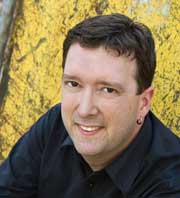
Mark Engebretson is Associate Professor of Composition and Electronic Music at the University of North Carolina at Greensboro. He is a 2007 recipient of a commission from Harvard University's Fromm Music Foundation, and the 2008 recipient of a major commission from the Thomas S. Kenan Center for the Arts. His compositions have been presented at festivals such as ICMC (International Computer Music Conference), Bowling Green Festival of New Music and Art, Third Practice Festival (University of Richmond), Wien Modern (Vienna), Gaida Festival (Vilnius, Lithuania), Sonoimagenes (Buenos Aires) Horgange Festival (Vienna), Ny Musikk (Bergen, Norway), Indiana State University New Music Festival (Terre Haute, Indiana), the Florida Electroacoustic Music Festival, ISCM Festivals (Tirana, Albania and Baku, Azerbaijan), the UNCG New Music Festival and World Saxophone Congresses (Pesaro, Italy, Montreal, Canada, Minneapolis, Minnesota and Ljubljana, Slovenia).
Performances include premieres by UNCG's EastWind Ensemble at Carnegie Hall, Tadeu Coelho and the Prism Saxophone Quartet, the SUNY Fredonia Wind Ensemble at a College Band Director's National Organization (CBDNA) regional conference, the Wroclaw (Poland) Philharmonic Orchestra, a presentation by the Jacksonville Symphony and a three-night, sold out engagement featuring Winter Ashes, with dance and video by John Gamble. Since it's completion in January 2006, SaxMax for saxophone and interactive electronics has received twelve performances worldwide.
Dr. Engebretson taught composition at the University of Florida, music theory at the SUNY Fredonia and 20th-century music history at the Eastman School of Music. He studied at the University of Minnesota (graduating Summa cum Laude), the Conservatoire de Bordeaux (as a Fulbright Scholar), and Northwestern University, where he received the Doctor of Music degree. At Northwestern he studied composition with M. William Karlins, Pauline Oliveros, Marta Ptaszynska, Michael Pisaro, Stephen Syverud and Jay Alan Yim and saxophone with Frederick Hemke. His teachers in France were Michel Fuste-Lambezat and Jean-Marie Londeix.
Alphonse Stallaert
http://www.stallaert.fr/
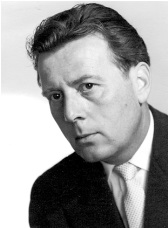
Alphonse Stallaert was born on March 1st in Helmond, Netherlands. He studied composition and conducting at the Utrecht and Paris Conservatories. His principle teachers were Hendrik Andriessen, Bertus Van Lier, André Cluytens and Arthur Honegger.
After some minor success as a conductor, he turned his energies to composition. In 1951, his first work "Concerto for Piano and Orchestra" was performed at the Besancon festival and many other venues in France and The Netherlands. While working as a copyist and giving lessons and lectures to live on, he passionately devoted himself to composition: a horn concerto, a concerto for two pianos, lieder on Sadi de Gorter's poems, a quartet for strings, a saxophone quintet and a string quartet.
He worked as a music critic for a Dutch paper and for a literary review, Euros, and from 1965 to 1974 he composed for television. He spent many sleepless nights writing more serious compositions. He also taught at the European Conservatoire in Paris (Conservatoire Européen de Paris).
In 1978, he settled in Maria Van Der Meer's house on the Fanac Island in Joinville-le Pont, near Paris, on the banks of the Marne, a suitable place for him to get inspiration. He also frequently stayed at his wife's, at the Issambres on the French Riviera. With her, far from the hustle and bustle of the capital, he found the peace and quiet that his work required.
He died in Fréjus on December 15th. He lies in the cemetery of Auvers sur Oise near the man he admired so much, Vincent Van Gogh.
Günter Raphael http://www.guenter-raphael.de
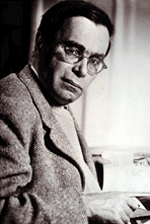
Born in Berlin, nurtured by his family's cultural heritage, he learned to play viola and piano and devoted himself to the study of musical scores and to composition. His formal study took place at the Berlin High Conservatory of Music (Musikhochschule Berlin). His principal teachers included Arnold Ebel, Robert Kahn and Albert Mendelssohn. At the age of 23 he signed his first contract with the publisher Breitkopf & Härtel, began teaching at the Leipzig Conservatory and had his first symphony performed by Wilhelm Furtwängler with the Gewandhaus Orchestra. In 1934 his work was banned by the Nazi Regime. He also contracted tuberculosis. For the next ten years he continued to compose prolifically despite his illness, miserable hospital conditions, professional ostracism, and the increasing mortal danger posed by the SS. After the War, Raphael is unable to regain his prior status. He did find publishers for his music, and performed with his wife in numerous concert tours and radio broadcasts. In 1948 he was granted the Franz-Liszt-Award for composition, which enabled him to subsequently secure teaching positions at the Duisburg Conservatory, the Peter Cornelius Conservatory in Mainz, and the Cologne Conservatory. In 1968, Günter Raphael was posthumously awarded the title "Senator of Honour" at the Felix Mendelssohn-Bartoldy University of Music in Leipzig.